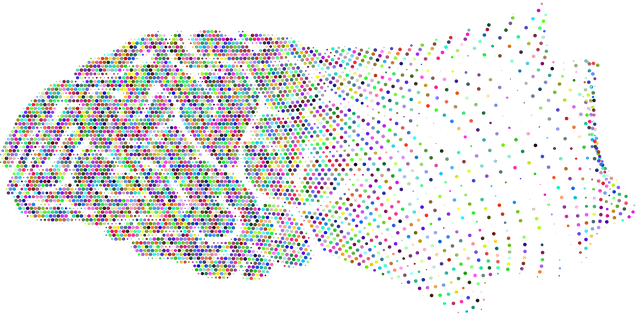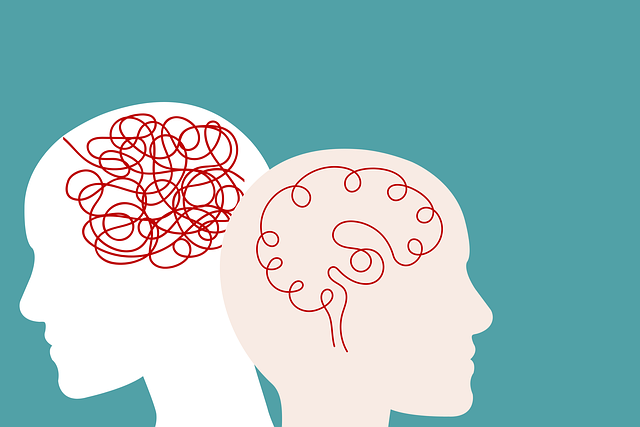Golden Christian Counseling Therapy (GCCT) leverages comprehensive mental wellness self-assessment tools as a catalyst for personal growth and self-discovery, addressing spiritual, emotional, and mental aspects of well-being. By identifying key areas and cultivating awareness, individuals gain insights into their psychological states and develop resilience. GCCT's holistic approach, integrating evidence-based practices with spiritual guidance, enhances mental wellness management for professionals, fostering effective career planning and preventing burnout. Regularly evaluating assessment effectiveness through client feedback ensures the approach remains relevant and improves overall mental wellness management confidence.
Mental wellness self-assessment tools play a pivotal role in fostering personal growth and understanding. This article delves into the development of such tools, highlighting the crucial contributions of Golden Christian Counseling Therapy. We’ll explore foundational concepts, key areas like symptoms, triggers, and resilience, and comprehensive assessment frameworks. By examining effective questions, scales, and metrics, we’ll uncover strategies for implementing and evaluating self-assessments that drive improved mental wellness.
- Understanding Mental Wellness Self-Assessment: A Foundation for Personal Growth
- The Role of Golden Christian Counseling Therapy in Developing Effective Tools
- Identifying Key Areas: Symptoms, Triggers, and Resilience
- Creating Comprehensive Assessment Frameworks: Questions, Scales, and Metrics
- Implementing and Evaluating Self-Assessments: Pathways to Improved Mental Wellness
Understanding Mental Wellness Self-Assessment: A Foundation for Personal Growth

Mental wellness self-assessment tools serve as a powerful foundation for personal growth and self-discovery. By providing individuals with a clear picture of their mental health status, these tools empower them to take charge of their well-being. At Golden Christian Counseling Therapy, we recognize that understanding one’s mental wellness is the first step towards transformative change. This process allows clients to identify areas where they may need support, whether it’s managing stress, improving communication strategies, or seeking trauma support services.
Through self-assessment, individuals gain valuable insights into their emotional state and behaviors, enabling them to set realistic goals for improvement. Our counseling therapy approach is designed to guide clients through this journey of introspection, offering tailored recommendations and resources to enhance their mental wellness. By embracing these assessments, folks can cultivate resilience, foster positive coping mechanisms, and ultimately lead more fulfilling lives.
The Role of Golden Christian Counseling Therapy in Developing Effective Tools

Golden Christian Counseling Therapy (GCCT) plays a pivotal role in fostering mental wellness self-assessment tools that are both comprehensive and effective. With its rich philosophical foundation, GCCT emphasizes holistic healing, addressing not just the mind but also the spiritual and emotional aspects of an individual’s well-being. This approach is crucial for developing tools that prevent burnout among mental health professionals, a growing concern in today’s demanding healthcare landscape.
By integrating evidence-based practices with spiritual guidance, GCCT enhances the accuracy and utility of risk assessment for mental health professionals. This duality allows for not only identifying potential risks and vulnerabilities but also equipping individuals with healthy coping mechanisms and resilience strategies. Consequently, the tools developed through this lens contribute significantly to effective risk management planning, ensuring practitioners can navigate their careers while prioritizing their mental wellness.
Identifying Key Areas: Symptoms, Triggers, and Resilience

Identifying Key Areas is a fundamental step in any self-assessment journey towards mental wellness. This process involves delving into one’s symptoms, understanding personal triggers, and cultivating an awareness of inherent resilience. Symptoms, be they physical or psychological, serve as red flags signaling underlying issues that require attention. By recognizing these symptoms, individuals can initiate the process of seeking appropriate help, whether from a trusted healthcare provider or through professional counseling therapy like Golden Christian Counseling Therapy.
Triggers are often the catalyst for mental health challenges. They can be specific situations, environments, or even certain thoughts and memories. Identifying these triggers is crucial as it allows for proactive management and avoidance of potential setbacks. Resilience, on the other hand, is the body’s natural defense mechanism that aids in recovering from stress or trauma. Recognizing and understanding one’s resilience enables individuals to harness this inner strength during difficult times, fostering emotional healing processes and enhancing overall well-being, even in the face of anxiety relief challenges.
Creating Comprehensive Assessment Frameworks: Questions, Scales, and Metrics

Developing comprehensive assessment frameworks is a cornerstone of effective mental wellness self-assessment tools, offering a structured approach to evaluating an individual’s psychological state. These frameworks encompass various components, including well-crafted questions, reliable scales, and meaningful metrics. The design should aim to capture not only symptoms but also the underlying factors contributing to one’s mental health. For instance, a robust framework might include sections on mood regulation, stress management, and interpersonal relationships, utilizing scales that assess severity and frequency of symptoms over time.
Golden Christian Counseling Therapy can benefit from integrating conflict resolution techniques and communication strategies within these frameworks. By encouraging self-reflection through thoughtful questions, individuals can gain insights into their emotional well-being promotion techniques. This proactive approach allows for early identification of potential issues, enabling professionals to guide clients towards more adaptive coping mechanisms and enhanced overall mental wellness.
Implementing and Evaluating Self-Assessments: Pathways to Improved Mental Wellness

Implementing self-assessment tools is a powerful strategy for promoting mental wellness, and Golden Christian Counseling Therapy has recognized its potential. These assessments provide individuals with an opportunity to gain valuable insights into their emotional well-being, fostering self-awareness and personal growth. By integrating such tools into counseling sessions or even creating dedicated Mental Wellness Podcast Series Production, therapists can offer clients a structured yet personalized journey of exploration.
Regularly evaluating the effectiveness of these self-assessments is essential for continuous improvement. Feedback from clients can guide adjustments to the assessment process, ensuring it remains relevant and beneficial. For instance, incorporating Conflict Resolution Techniques within the assessments can enhance their value, as understanding personal conflict styles contributes to overall mental wellness. This iterative approach allows for a dynamic and responsive framework, ultimately boosting confidence in managing one’s mental health.
Mental wellness self-assessment tools, guided by evidence-based practices like Golden Christian Counseling Therapy, are powerful catalysts for personal growth. By identifying symptoms, triggers, and building resilience, individuals can gain profound insights into their mental health. Comprehensive frameworks, including carefully crafted questions, scales, and metrics, empower people to take proactive steps towards improved wellness. This article has explored these essential components, offering a roadmap for developing effective self-assessment tools that can make a tangible difference in navigating the complex landscape of mental health.










